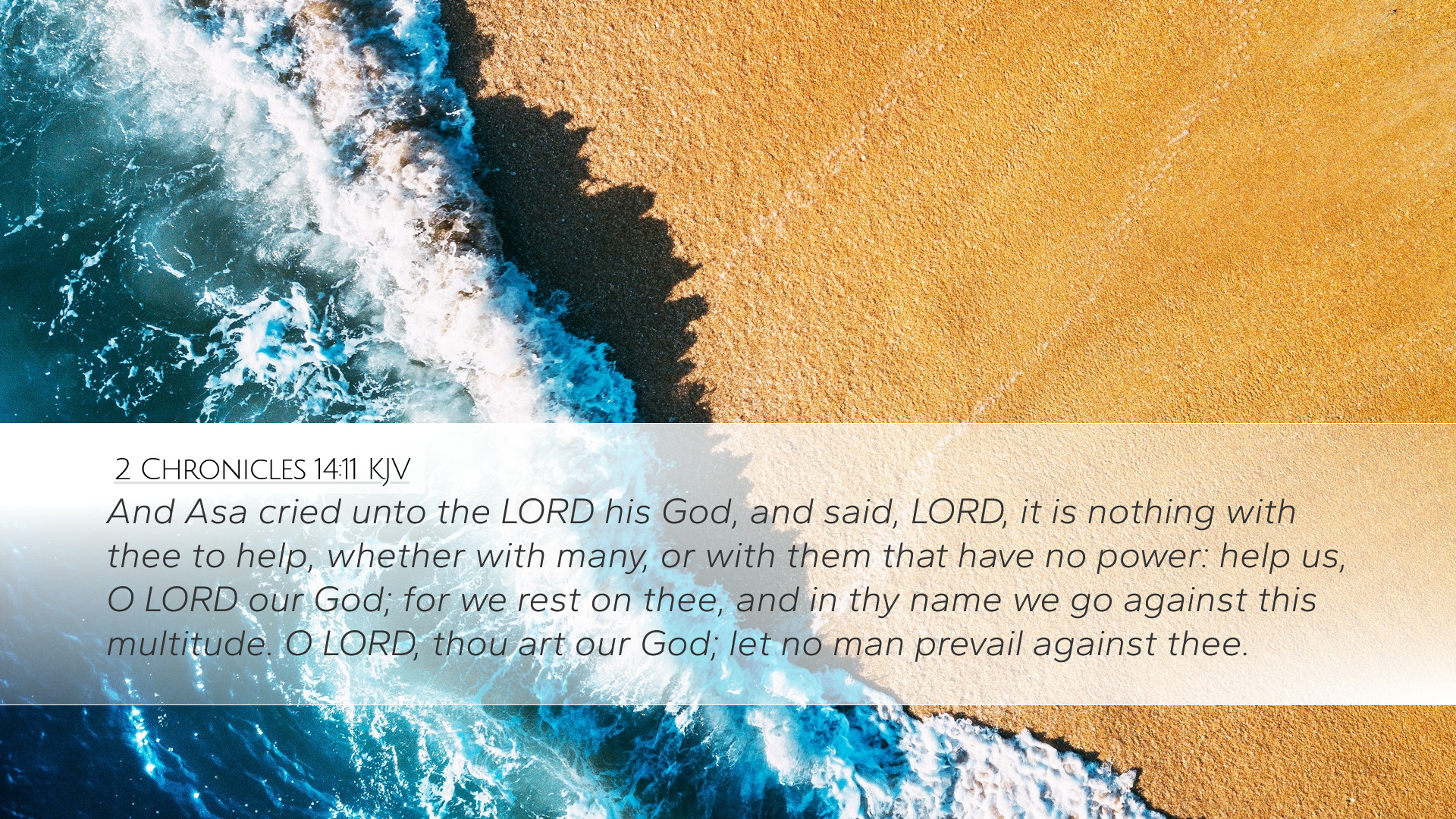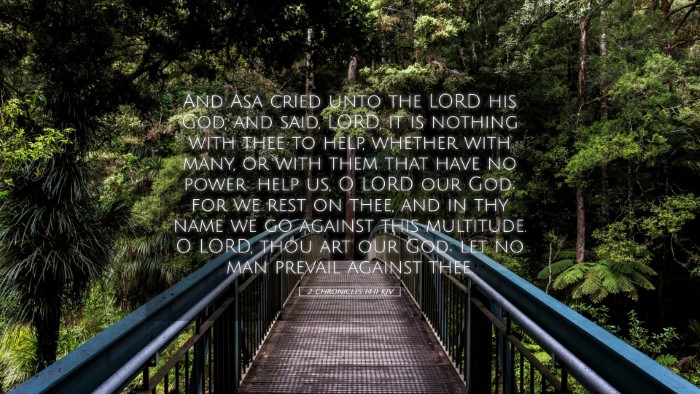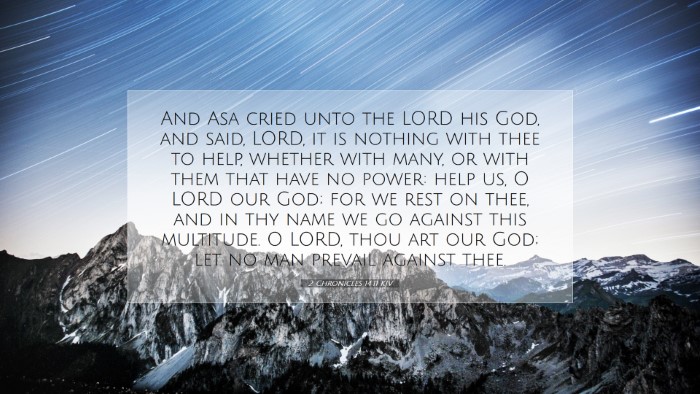Commentary on 2 Chronicles 14:11
Verse: "And Asa cried unto the Lord his God, and said, 'Lord, it is nothing with thee to help, whether with many, or with them that have no power: help us, O Lord our God; for we rest on thee, and in thy name we go against this multitude. O Lord, thou art our God; let not man prevail against thee.'
Context and Background
This verse is situated in a historical narrative focusing on King Asa of Judah, who ruled during a tumultuous period characterized by conflict with neighboring nations and internal strife. Asa is highlighted for his faithfulness to God and reforms to restore true worship in Israel. The immediate context of this verse depicts a crucial moment in Asa's reign as he faces an overwhelming military threat from Zerah the Ethiopian, who brings a large army against him.
The Nature of Asa's Prayer
Asa’s prayer is remarkable for its depth of faith and understanding of God’s character. He acknowledges God's omnipotence, stating that it is "nothing with thee to help." This phrase reflects the belief that God's ability to assist is not contingent on human strength or numbers. Asa's diplomatic disposition towards God echoes sentiments found in other significant prayers throughout Scripture, emphasizing reliance on divine support over military might.
Key Themes in Asa's Prayer
- The Power of Prayer: Asa's cry demonstrates the essential practice of seeking divine intervention in times of crisis. Historical commentaries, such as those by Matthew Henry, emphasize the importance of prayer as a tool for believers to express their need for help and guidance from God.
- Faith in God's Sovereignty: Asa's acknowledgment that God can save "with many or with few" highlights a profound faith in God’s sovereignty. Albert Barnes articulates that true reliance on God leads us to understand that victory or defeat rests solely in His hands, not dictated by our resources.
- Trust in God: The phrase "we rest on thee" indicates Asa's complete reliance on God. Adam Clarke notes that this confidence in God is crucial for believers; it signifies a state of spiritual rest and assurance that impacts our actions and decisions when faced with adversity.
The Significance of the Multitude
Asa's reference to the multitude serves as a reminder of the real threats that can overwhelm believers. The Ethiopian army, comprised of numerous forces, symbolizes trials that seem insurmountable to human perspective. Yet, Asa reiterates that such numbers do not intimidate God. This theme reoccurs throughout biblical narrative, emphasizing that victory is guaranteed by God rather than human capability.
Commentary Insights
- Matthew Henry: He underscores how Asa’s dependence on God is a model for all believers, encouraging them to emulate this example during their own trials.
- Albert Barnes: He draws attention to the contrasting nature of God’s supernatural intervention as opposed to human strategy and strength, arguing that believers are encouraged to seek divine guidance above all.
- Adam Clarke: He provides an analysis of the theological implications of Asa’s words, linking them to the broader context of God’s covenant with His people and affirming that divine assistance goes beyond mere physical salvation.
A Lesson for Believers Today
This verse teaches contemporary believers about the necessity of turning to God in prayer during trials. Pastors and theologians highlight that like Asa, modern believers must confront their adversities by proclaiming their dependence on God’s power rather than their own resources. The recorded assurance in Scripture serves as a motivator for faithful living, relying on God’s promise to uphold and defend His people.
The Infrastructure of Faith
The text calls for a reevaluation of how believers engage with challenges. The act of resting on God symbolizes a necessary shift from self-reliance to divine dependence. This is echoed across various commentaries, driving home the point that real faith unfolds not merely in the absence of challenges but rather in the conscious choice to trust God amidst our struggles.
Conclusion
In conclusion, 2 Chronicles 14:11 encapsulates a powerful moment of faith in a desperate time, providing pertinent insights for pastors, students, and scholars. Asa's heartfelt plea reflects the essence of prayer as a lifeline to God. The verse teaches us not only about the importance of divine assistance but also the significance of a faith that recognizes God's supremacy over all challenges. This commentary synthesizes the thoughts of respected theologians, encouraging a robust faith that undeterred by the multitude but relies solely on God’s unfailing strength.


